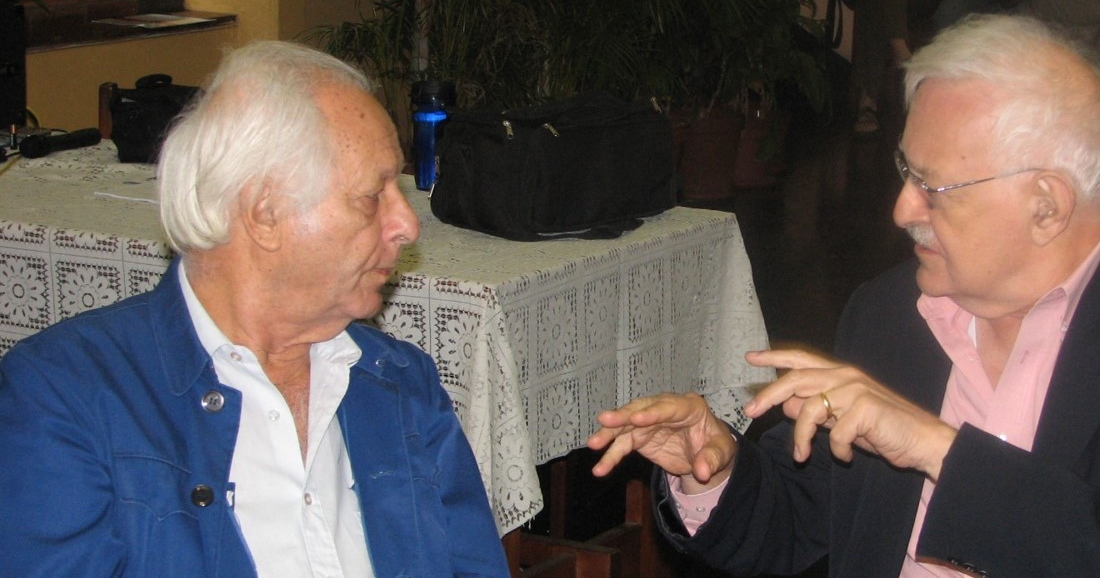- cross-posted to:
- africa@lemmygrad.ml
A worthwhile read on global capitalism, sub imperialism, apartheid and post apartheid South Africa, Israel, global apartheid and BRICS+.
Absolutely amazing article a 11/10.
Its sad you left us OP, maybe one day if you return let it be known Patrick Bond is and has been on fucking fire all this time. Not just standing on the shoulders of Samir's sharp criticism but even his recent articles as of Dec 2024, just what an incredibly good writer.
Its funny that I knew of Patrick because Michael Roberts(thenextrecession blog) loved that one quote from some time ago("Brics talk left walk right" he even reiterates it here when he talks about the Russian assets issue), it is a pleasant surprise Patrick not only continued on that critique but is continuously expanding on it masterfully.
A bit of warning though its a fairly long article and the first half is dedicated as a introduction and contextualization of the South African apartheid which is specialy useful for the unfamiliar.
I am now slowly trying to find time to read on all his articles, if I could I'd quote everything, but this, this is just damning, you hate to see it but what a damn banger I'd quote everything if I could.
Against South Africa’s corporate-neoliberal, sub-imperial expansion, Amin repeatedly argued on behalf of anti-imperialist alliances, such as in a 2016 book, The Long Term Prospects of the Arab World:
“A new path of development, the only guarantee of social justice claimed by the vast majority of people, is excluded in the current economic model and is synonymous with a rupture with economic liberalism. And because this option comes into open conflict with the logic of the global system dominated by the imperialist powers, the assertion of national independence, in turn, is the condition for progress in this direction. It is therefore necessary to relinquish the exploration of ‘friendship’ with the United States and Europe, to give up seeking their ‘economic aid,’ to revive the spirit of Bandung, to open negotiations with China and the BRICS, and to flesh out the prospect of rebuilding a front of the South” (Amin 2016, 71).
But Amin (2016, 71) was already aware of the BRICS’ limitations, asking poignantly,
“Could a project of this kind be implemented from above by national powers? This was the case in the era of Bandung and of national popular but undemocratic projects of that era (1955-1980). But today a replay of those projects seems hard to imagine because the new ruling classes, shaped and enriched by their adherence to the liberal globalisation established over four decades, aspire only to maintain the system from which they benefit.”
In a 2015 Monthly Review essay, Amin (2015) confirmed his negative impression:
“The ongoing offensive of United States-Europe-Japan collective imperialism against all the peoples of the South walks on two legs: the economic leg – globalised neoliberalism forced as the exclusive possible economic policy; and the political leg — continuous interventions including pre-emptive wars against those who reject imperialist interventions. In response, some countries of the South, such as the BRICS, at best walk on only one leg: they reject the geopolitics of imperialism but accept economic neoliberalism.”
In a follow-up, he critiqued the BRICS because economically, “success is primarily defined in terms of the neoliberal ideology, as an example of the success of ‘happy globalisation’” (Amin 2016c, 138). Others have the same impression. For Tanzanian Marxist Issa Shivji (2019, 266-67), the initial political-economic projects of ‘Bandung and Pan-Africanism’ were
“led by the bourgeois tendency that sought to install an auto-centric capitalist accumulation within their countries and nations. This proved to be its failure as peoples’ projects. The bourgeoisies in Asia and the proto-bourgeoisies, private or state, in Africa were eventually compradorised, thus yielding BRICS and NEPAD – integrationist projects par excellence. The auto-centric tendency of accumulation was subverted… BRICS and NEPAD are symptomatic of the integrationist path based on hubs and hinterland.”
Beyond participation in neoliberal multilateral institutions, in the five years after Amin’s 2018 death there were many ways that the BRICS sub-imperial project played out, which he would have found familiar. BRICS directors and staff have had entirely uncritical participation in the International Monetary Fund (without any appearance by the BRICS’ Contingent Reserve Arrangement) and the World Bank (with a BRICS New Development Bank indistinguishable from orthodox institutions except for more blatant corruption). That role included not only generous recapitalisation (at the expense of poor countries’ voting share) but regular support for their U.S. and European leaders. BRICS delegates even voted for the climate-denialist Sinophobe David Malpass, appointed to run the World Bank in 2019 by Donald Trump, as well as for IMF Managing Director Christine Lagarde in 2011 and again in 2015, although she was at the time facing prosecution for political corruption during her time French Finance Minister, for which she was ultimately convicted in 2016.
As for the BRICS Bank, the main 2023 controversy surrounded the need to increase local-currency lending – because its President Dilma Rousseff confirmed a rise from 22 to 30 percent of its asset base in non-dollar or euro currencies by 2030, a revealingly unambitious objective. The BRICS Bank agreed to Western financial sanctions against Russia (a 19 percent owner) in 2022 due to its fear of the New York credit ratings agencies’ downgrade, bragging that Moscow loans represented less than 7 percent of the bank’s assets. The ongoing role of BRICS in United Nations climate summits fuses tightly with that of the West, insofar as adequate emissions cuts and acknowledgement of ‘climate debt’ liabilities to the rest of the world are both rejected by imperial and sub-imperial climate powers. Numerous other instances of anti-imperialist rhetoric contradicted by sub-imperial practice suggest that the formulation of semi-peripheral capital’s joint super-exploitation and expansion, notwithstanding occasional ‘antagonistic’ forms of cooperation with imperialism – formulated by Marini and given African expression by Amin – remains valid (Samson 2009, Bond 2023).


